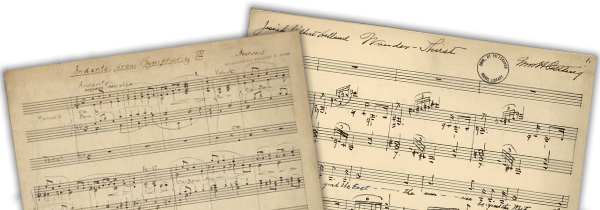“The Hour for Thee and Me” was entered for copyright entry on July 9, 1852, by Firth, Pond & Co. There is no record of copyright deposit.
Evelyn Foster Morweck writes in The Chronicles of Stephen Foster’s Family, “After his return from the South in March, 1852, Stephen published that year ‘Massa’s in de Cold Ground,’ ‘The Hour for Thee and Me,’ ‘I Cannot Sing Tonight,’ and ‘Maggie by My Side.’”
